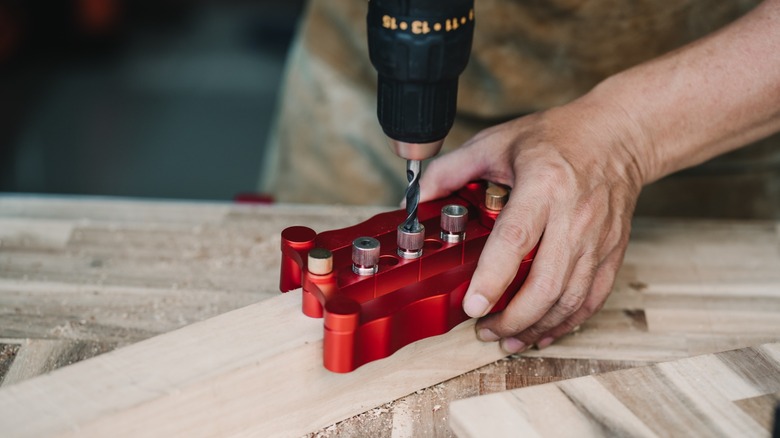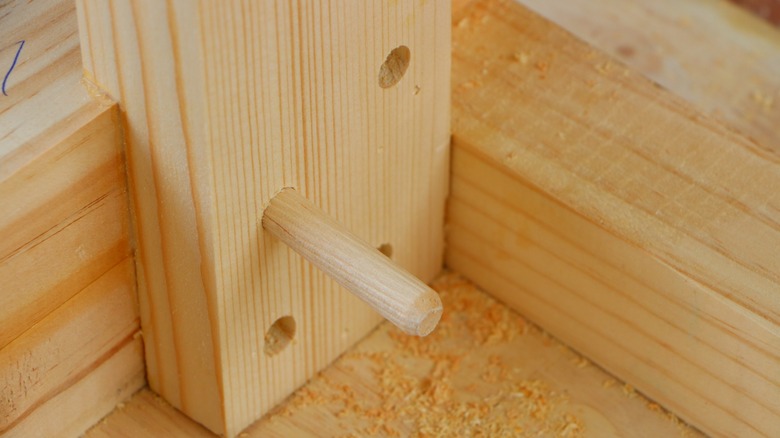Woodworking is full of heated debates, thanks to the range of options available for your project. When it comes to the choice of materials, tools, and joinery, there’s a pool of variety to pick from. Think pine vs oak, to hand plane vs router, and even table saw vs band saw. And while there are some woodworking tools that are essential for advancing your skills. Making the right choice between the optional ones is equally important.
An option in the toolkit that tends to divide the woodworking group chat is joinery. More specifically, the choice between dowel joints and pocket holes. Both promise to hold your project together, but they do so in very different ways. Dowels rely on simple wooden pins, glued into aligned holes, to create a seamless bond. Pocket holes use angled screws driven into hidden pockets to fasten boards together. The belief is that every woodworker should have a pocket hole jig in their toolkit. However, there is an argument that dowel joints are stronger and perform better. So let’s break it down and find out what woodworkers need to know. Whether dowel joints are, in fact, stronger than pocket holes.
Choosing the right joint for your project
Pocket hole joints have a lot of upside. They are quick as its screws generate their own clamping force as they tighten. This holds the joint together instantly and lets you move on within seconds. Its ease of use is an advantage if you struggle with hand tools or fancy dovetails. The pocket hole jig is also typically very strong. Tests showed that it took a load of 707 pounds to break one.
Dowel joints seem to outshine the pocket hole jig in terms of strength. Woodgears’ home lab tests show this. Using spruce scraps, the test showed that pocket hole joints began to open at about 50 pounds of force. They failed between 75 and 120 pounds, averaging 99 pounds to break. The dowel joints performed better in the same setup. They held firmly up to loads between 149 and 160 pounds. This means it averages 153 pounds before breaking. That makes dowels roughly 50% stronger than unglued pocket screws in that setup.
It would seem that your choice between these joiners comes down to the specifics of your project. If you want something quick and easy to use, then pocket holes offer more upside. However, when strength is in play, it’s hard to overlook the advantage of dowel joints. It is also worth noting that dowels offer a more aesthetically pleasing option. This can take a hit with pocket holes as the split pockets are visible on one face, so you’ll have to hide them on the underside or fill them with plugs and filler.


